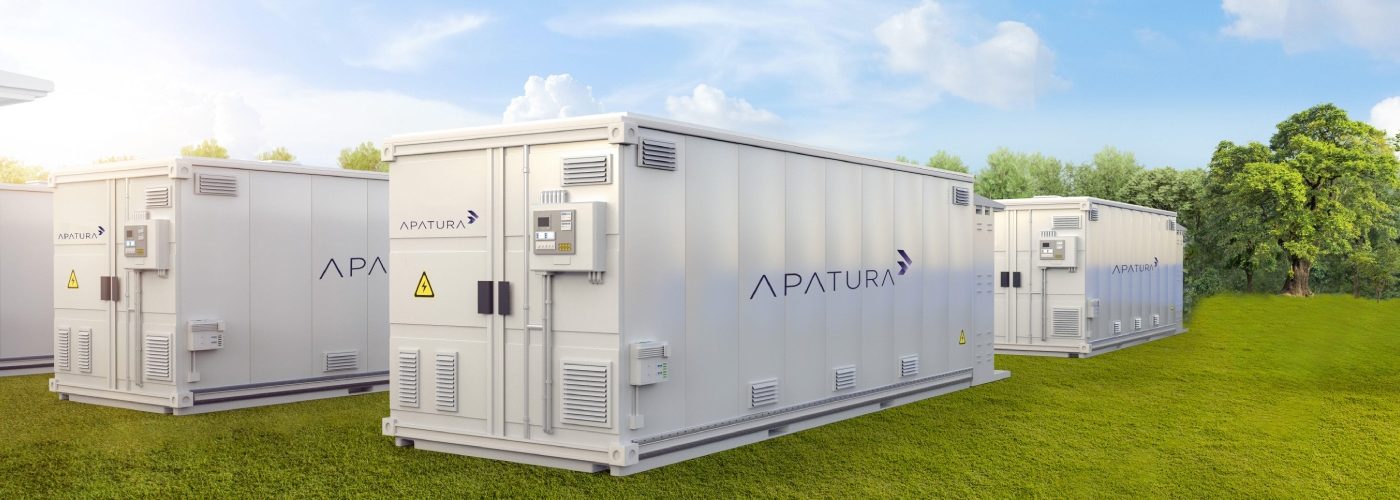New site at Port Glasgow will deliver grid scale battery energy storage driving its renewable energy ambitions in Scotland
Renewable energy storage specialist Apatura has secured planning permission for a major new Battery Energy Storage System (BESS) in Port Glasgow, Inverclyde with a capacity of 700 megawatts (MW).
This is the largest planning consent for a stand-alone BESS in Scotland to date and the biggest ever secured by Apatura Energy, marking a significant milestone in the company’s relentless mission to deliver sustainable energy solutions that fast-track the path to net zero. It is also the fourth consent in less than 12 months, and Apatura Energy expects more to follow soon.
Andrew Philpott, Chief Development Officer, Apatura stated: “We are delighted that Ministers have supported this critically important scheme and the local Council – Inverclyde – lodged no objections. Our focus on Scotland is central to our vision to harness its renewable energy potential. This latest planning consent is not only the largest consent for a stand-alone Battery Scheme in Scotland, but it also positions us at the forefront of delivering resilient energy infrastructure. This is also a central goal of the NGESO Beyond 2023 report which highlighted the vital role of BESS in Scotland.”
The Auchentiber BESS, which will comprise of a battery electricity storage facility and associated infrastructure and the planting of new native species trees to improve biodiversity, was approved by the Energy Consents Unit on 11 September 2024.
When it comes online it will make a substantial contribution to the Scottish Government’s goal of generating 50% of Scotland’s overall energy consumption from renewable sources, and by 2050 to have decarbonised its energy system almost completely. It is therefore critical to meeting the UK Government’s commitment to achieving Net Zero as set out in the Climate Change Act 2008 (2050 Target Amendment) Order 2019.
Apatura worked closely with the Energy Consents Unit and Inverclyde Council to achieve this success which will not only bring grid resilience but will also create local job opportunities and a Community Benefit Fund. Direct employment opportunities are expected during the construction, operational and decommissioning phases, as well as indirect job creation throughout the supply chain and related services.
BESS is advanced technology systems designed to store electrical energy during periods of high generation and low demand which can then be exported back into the grid network during periods of high demand.
According to the Decision Letter not only did Scottish Ministers acknowledge that Apatura Energy conducted good practice community engagement, but the ‘Grid scale battery energy storage provides a means to store the electricity generated from the wind, solar etc at times when electricity generation outstrips demand or when the capacity of a constrained electricity grid is insufficient to supply the generated electricity to consumers. On this basis battery energy storage makes an indirect but significant contribution to renewable energy generation targets and greenhouse gas emissions reduction targets, by effectively increasing the productivity of renewable generators elsewhere on the grid. This is a significant factor weighing in favour of the development.’
It went on to state the proposal ‘will contribute to sustainable development, providing for greater and more efficient use of renewable energy generation in the electricity system, and in this regard, it will contribute to greenhouse gas emissions reduction ambitions.’
“Our BESS plays a crucial role in modern energy management, especially in the context of renewable energy integration and grid stability. It is central to our goal of enhancing the renewable energy infrastructure in Scotland and follows on from a number of recent successful planning consents. This scheme will help deliver stable energy prices, leading to reduced bills, taking the pressure off households while at the same time increasing energy security. We are determined to deliver reliable, clean energy to communities across the country and this latest planning consent does just that,” concluded Philpott.
Building, Design & Construction Magazine | The Choice of Industry Professionals





